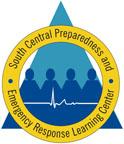
Environmental Health Issues in Disasters
Course Description:
This course takes a closer look at the fundamentals of environmental health through the lens of a disaster situation. Environmental health issues that arise during disasters are explored, and suggestions for environmental health responses unique to disasters are given. Several historical disaster examples are used, with a focus on Hurricane Katrina, the Indian Ocean tsunami and the World Trade Center collapse as the major case studies.
Upon completion of this course, the student will be proficient in the knowledge, theory, planning and application of each of the following fields of environmental health before, during and after a disaster:
- Water quality
- Wastewater and sewage treatment
- Food safety
- Rodents and insects
- Debris and hazardous waste
- Indoor and outdoor air quality
Target Audience
Academic Faculty/Staff, Federal Government Employees, State Government Employees, Local Government Employees, Non-Government Employees and Students
Learning Objectives
- Identify and prioritize the major elements of environmental health that become critical in disaster situations
- Compare and contrast the advantages and disadvantages of individual drinking water wells and municipal drinking water treatment systems after a disaster
- Compare and contrast the advantages and disadvantages of individual and municipal sewage treatment systems after a disaster
- Identify reasons that food safety may become compromised in a disaster situation
- List ways that food safety may be maintained during a disaster
- List the major types of pests and vectors of concern following a disaster and identify the diseases that they may transmit
- Describe measures that can be taken to control or eliminate exposure to each of these pests
- Discuss the main challenges to proper disposal of debris and hazardous waste after a disaster
- List some examples of possible air contaminants resulting from a disaster
- Describe some issues that an environmental health specialist may encounter in trying to monitor air quality post-disaster
Instructor:

Amy Vinturella Lafreniere, MS, SCD
Available Credit
- 2.00 Participation/CETulane Professional and Continuing Education (PaCE) awards 2.00 hour(s) of credit for completing Environmental Health Issues in Disasters
Price
Required Hardware/software
System Settings
This course is designed to work most effectively if your computer and internet connection meet certain minimal requirements. This course can be accessed using a Windows 10 PC or a Mac with High Sierra1, Mojave, or Catalina. Pop-up blockers should be disabled when viewing the course. Internet Explorer 11 (for Windows 10), or the current version of Google Chrome, Mozilla Firefox, or Apple Safari (for Windows 10 and or Mac) is required. Many of our courses require Java and JavaScript enabled.
Links to External Websites
Links to websites outside this course will open in a new window or tab. Some browsers may minimize the course window. If this occurs, maximize the course window to return to the course.
Adobe Acrobat Reader (for desktops and laptops)
Adobe Acrobat Reader is required to access some documents in this course. If you need to download a free copy of Acrobat Reader, click here.
Internet Connection Speed
A minimum download speed of 1.5 Mbps is recommended for an optimal experience, which is commonly the speed associated with a basic DSL or a cellular/satellite connection. A faster connection, such as cable or fiber service, with further enhance your online experience. A Wi-Fi connection is generally acceptable, but it is dependent upon one of the two services mentioned above. You can check your internet connection speed at http://www.speedtest.net/.

 Facebook
Facebook X
X LinkedIn
LinkedIn Forward
Forward